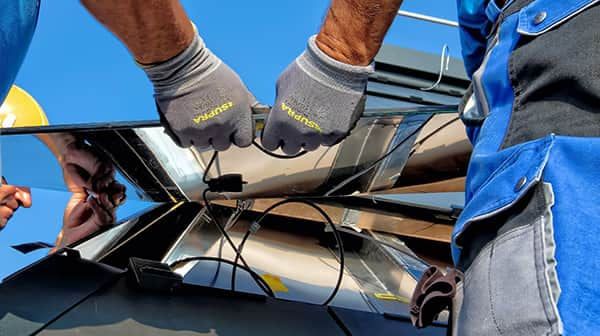HVAC Systems Using Sustainable Energy
HVAC/ACR International Mechanical Code
Published on September 30, 2020 by JADE Learning

The world continues to move in the direction of sustainable energy, and HVAC systems are no exception. Three types of systems in particular — DeVap, Solar, and Geothermal — are serving on the front lines of the HVAC fight against nonrenewable energy.
Learn the basics of each type of system and how they promote a more comfortable environment inside and a more sustainable one outside.
What You Should Know About Sustainable HVAC Systems
DeVap
DeVap stands for "Desiccant Enhanced Evaporative." Desiccant is a substance that absorbs water from its surroundings like a sponge. Traditional air conditioning units bring in hot air, condense it to remove moisture, and then cool it before re-distributing. This causes the system to work hard.
A DeVap system uses desiccant combined with evaporation technology to remove the moisture in a process that is up to 80 percent more efficient than a traditional HVAC system.
Solar
Solar panels are being used to bring electricity to lights, televisions, computers, and other household appliances. And HVAC systems have not been left out in the cold.
Solar HVAC systems work similarly to traditional systems except they are powered by electricity that has been converted from sunlight. These systems are typically also hooked up to a battery or other power source that may be used when there isn't enough solar energy available.
Geothermal
Geothermal HVAC systems use a heat pump to cycle water or refrigerant through underground pipes. The warmed fluid is then pumped back inside the building and a heat exchanger can transfer the heat from the fluid to the building's heating system.
Geothermal HVAC systems are more efficient than traditional units because they do not rely on electricity or gas for the actual treating of the air. Instead, they use the ground's natural temperature to heat or cool the air. In fact, a geothermal system can cut an energy bill by up to 65%.
